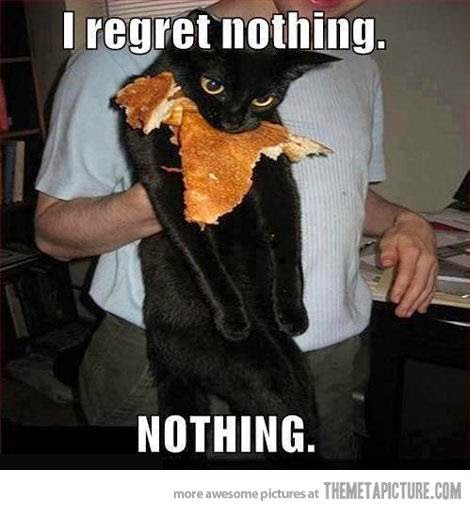Pop culture reference! From a movie I used to love and now have mixed feelings toward because of a bunch of internet trolls.
But anyway…
I was working on a rough outline for a book I’m hoping to write next year, and it occurred to me that I’d written a classic device into the story. About halfway through the book, my protagonist saves her cat.
…in a really clever and freaky way, I assure you.
You’ve heard that phrase before, yes? Saving the cat? I’ve talked about it here once or twice, and this little incident made me think it might be worth mentioning again.
“Saving the cat” is a term screenwriter Blake Snyder came up with many years ago. It’s when my character does something simple and quick early on in my story that gets everyone on their side. The example Snyder uses is saving a cat. My heroine sees a cat stuck in a tree, she gets the cat out of the tree. No big deal, moving on, right? It’s just a simple action or moment that assures my readers that this character is an overall decent human being.
(fun fact—“saving the cat” is a reference to Ripley saving Jones in Alien. Seriously. Look it up.)
(fun fact—“saving the cat” is a reference to Ripley saving Jones in Alien. Seriously. Look it up.)
 Remember in the first Captain America movie, when scrawny Steve Rogers stands up to Hodge out behind the movie theater, even though Hodge is twice his size? That’s a saving the cat moment. How about in Wesley Chu’s The Rise of Io, when the title character makes a point of sharing her food with the mangy dog that hangs around outside her apartment? Or when poor unloved Harry Potter sympathizes with the snake in the zoo about being raised in captivity?
Remember in the first Captain America movie, when scrawny Steve Rogers stands up to Hodge out behind the movie theater, even though Hodge is twice his size? That’s a saving the cat moment. How about in Wesley Chu’s The Rise of Io, when the title character makes a point of sharing her food with the mangy dog that hangs around outside her apartment? Or when poor unloved Harry Potter sympathizes with the snake in the zoo about being raised in captivity? All of these are save the cat moments. They’re small, almost inconsequential things that rarely have repercussions in the larger plot. But they affect how we view the character.
Now, here’s two key things to remember when I’m playing around with a save the cat moment. First, as I mentioned before, they almost always come fairly early in my story. Second. the reader has never been against the character who’s having this moment. Because saving the cat isn’t about changing my reader’s opinion of this person, it’s about emphasizing their opinion. It’s a shortcut to help my reader like them more and get invested in them sooner so I can move on to bigger and better things. The plot, for example.
Why do I mention these key things?
Well, there’s another device that mistakenly sometimes get lumped in with saving the cat, but it’s really the exact opposite. It’s not even a device so much as a bad habit some people have. It’s called patting the dog. This is when one of my characters does a small token thing late in the story and it’s supposed to make up for the numerous awful things we’ve seen said character do up ‘til this point.
See, patting the dog is usually third-act type stuff, because I’ve spent all my story up til now establishing this character in a certain way, that they have certain beliefs and loyalties. And the whole point of patting the dog is to then reverse how my reader feels about this person. If up until now, we wanted to see them dead under a bulldozer, at this point we should cheer for them. This one small act’s supposed to cause an emotional 180 in the reader.
Like I said, it’s pretty much the exact opposite of saving the cat.
It’s worth noting—patting the dog is almost always applied to antagonists. Usually as some kind of twist to turn the bad guy into some sort of anti-hero, or even a full on hero. When Wakko murders a dozen families and their children, but then realizes killing *this* person would be wrong… that’s patting the dog. Same with the evil cheerleader who’s made Dot’s four years of high school a living nightmare, but then decides to chip and help make posters for a bake sale. So’s the evil villain’s loyal lieutenant who tortures and maims our hero’s friends, but then discovers he has some vague relationship with the protagonist and decides to turn on his boss of ten years.
Now, this isn’t to say I can’t reverse how my readers see one of my characters. That’s one of the big goals in writing—to change how people think about things. But it’s never going to be a quick fix I can pull off with one paragraph. It’s going to take lots of moments and a lot of work. It’s a process that can’t be rushed. Even if I’m doing it with a clever twist, the reader needs to look back and see that the seeds of this change stretch all through my story.
Because you may remember the other word for when someone does a sudden change of beliefs and loyalties. It’s called a betrayal. And no one likes to be betrayed.
Even if it’s just by something they’re reading.
Next time, I’d like to talk a bit about what’s going on in that other scene.
Until then, go write.




